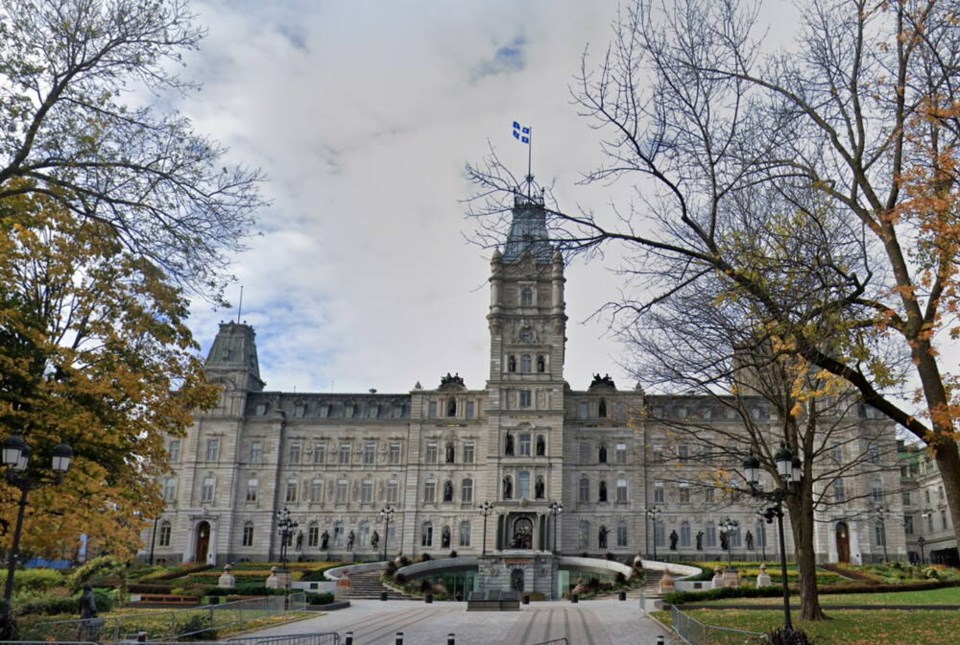The City of Victoria will join other Canadian municipalities in pledging financial support for a legal challenge of a Quebec bill that bans public-sector employees from wearing religious symbols at work.
Councillors voted Thursday to provide $9,500 to a legal appeal led by the National Council of Canadian Muslims and the Canadian Civil Liberties Association to strike down Bill 21, which bars public-sector workers deemed to hold positions of leadership, such as teachers and police officers, from wearing crosses, hijabs, turbans and other visible religious symbols.
The Canadian Civil Liberties Association says the bill “unfairly targets people who express their faith through what they wear.”
Passed in June 2019, the bill made headlines recently after a Quebec teacher said she was told she could no longer teach in a classroom because she wears a hijab.
Shortly after, Patrick Brown, mayor of Brampton, Ont., published a letter appealing to 100 Canadian mayors to fight against the bill.
Victoria joins Winnipeg and Ontario cities Brampton, Toronto, London, Milton, Markham and Whitby in pledging financial support, from $10,000 to $100,000. Other municipalities, such as Calgary, have condemned the legislation but stopped short of contributing funds.
“Although the Quebec government presented [the bill] as promoting religious neutrality of the state, it’s actually a thinly veiled attack on religious and cultural traditions of religious minorities,” said Coun. Sharmarke Dubow, who presented a motion to contribute up to $50,000 to the legal challenge, leaving the amount open to discussion.
Dubow told councillors he was given a copy of the Charter of Rights and Freedoms when he swore an oath to become a Canadian citizen in 2017, and he feels a responsibility to protect and defend the rights enshrined in the Charter.
Reading the Charter is a reminder of “what we have and what we could lose” if Canadians don’t challenge the bill, which represents “textbook discrimination,” Dubow said.
Councillors expressed unanimous opposition to Quebec’s legislation and tried to agree on an appropriate financial contribution, suggesting amounts from $5,000 to $10,000.
Mayor Lisa Helps recommended $7,650 based on a rough per capita calculation of the contribution made by a couple of cities.
“Part of the motion is send this to everybody in B.C. and ask them to contribute. We have to give them some basis to make a decision if we want them to come along with us,” Helps said, calling the bill “problematic legislation” that particularly impacts people who are racialized and part of religious minorities.
That amount seemed to be supported by all councillors, including some who expressed concerns about allocating city money for matters outside Victoria.
“I don’t think this is going to receive general support in the public. However, I am going to vote in favour of spending this money, for a couple of reasons,” Coun. Stephen Andrew said of the $7,650 amount proposed. “Because I said at the beginning, if it’s an issue of human rights, then I would vote in favour of human rights and I believe that this is an issue.”
The vote split when councillors ultimately approved contributing $9,500, an amount put forward by Coun. Ben Isitt to represent roughly 10 cents per resident. Councillors Andrew, Charlayne Thornton-Joe and Geoff Young voted in opposition to the final amount.
Before the final vote, Young said: “This has probably pushed me to the point where I’m not going to be able to support this, which, on balance as a symbolic action, I think I would have been prepared to, despite some misgivings.”
Part of the bill was struck down as unconstitutional last year by the Quebec Superior Court in a decision that recognized the harm to people who wear religious symbols but left most of the law intact.
The National Council of Canadian Muslims and the Canadian Civil Liberties Association have launched an appeal to the court’s decision.



